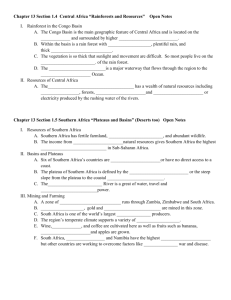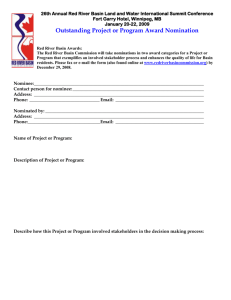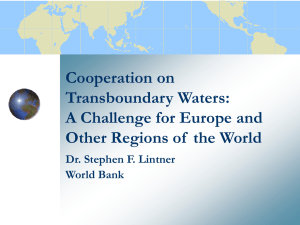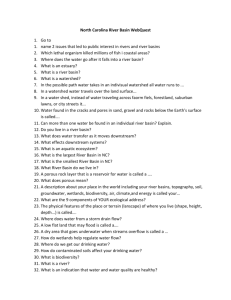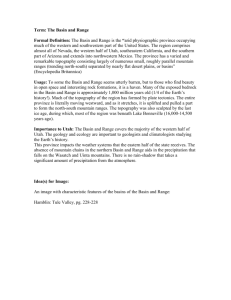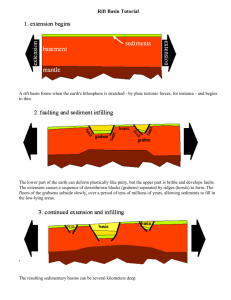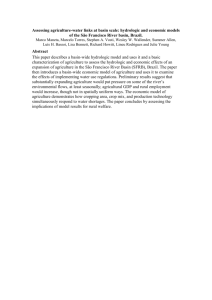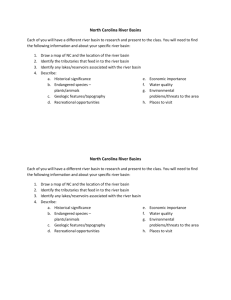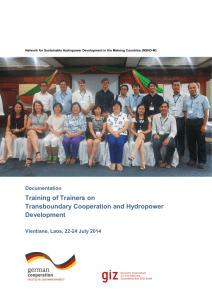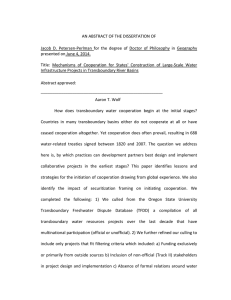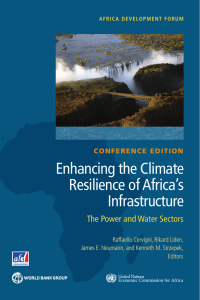FAO e-mail CONFERENCE INTERVENTIONS ON RIVER BASIN
advertisement
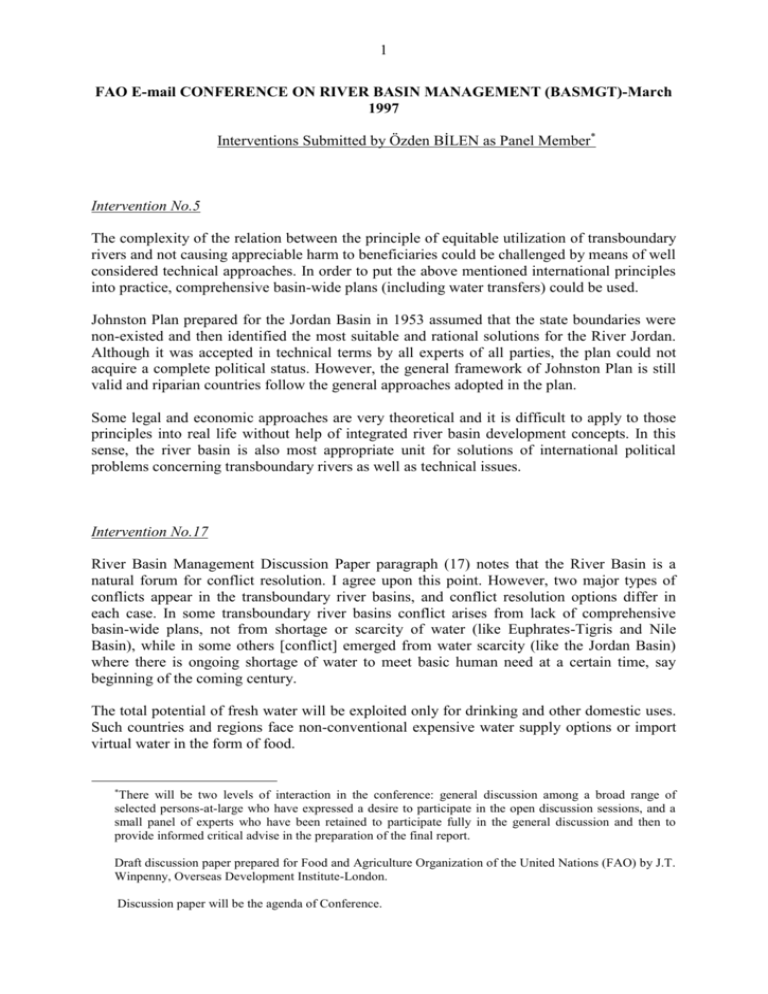
1 FAO E-mail CONFERENCE ON RIVER BASIN MANAGEMENT (BASMGT)-March 1997 Interventions Submitted by Özden BİLEN as Panel Member* Intervention No.5 The complexity of the relation between the principle of equitable utilization of transboundary rivers and not causing appreciable harm to beneficiaries could be challenged by means of well considered technical approaches. In order to put the above mentioned international principles into practice, comprehensive basin-wide plans (including water transfers) could be used. Johnston Plan prepared for the Jordan Basin in 1953 assumed that the state boundaries were non-existed and then identified the most suitable and rational solutions for the River Jordan. Although it was accepted in technical terms by all experts of all parties, the plan could not acquire a complete political status. However, the general framework of Johnston Plan is still valid and riparian countries follow the general approaches adopted in the plan. Some legal and economic approaches are very theoretical and it is difficult to apply to those principles into real life without help of integrated river basin development concepts. In this sense, the river basin is also most appropriate unit for solutions of international political problems concerning transboundary rivers as well as technical issues. Intervention No.17 River Basin Management Discussion Paper paragraph (17) notes that the River Basin is a natural forum for conflict resolution. I agree upon this point. However, two major types of conflicts appear in the transboundary river basins, and conflict resolution options differ in each case. In some transboundary river basins conflict arises from lack of comprehensive basin-wide plans, not from shortage or scarcity of water (like Euphrates-Tigris and Nile Basin), while in some others [conflict] emerged from water scarcity (like the Jordan Basin) where there is ongoing shortage of water to meet basic human need at a certain time, say beginning of the coming century. The total potential of fresh water will be exploited only for drinking and other domestic uses. Such countries and regions face non-conventional expensive water supply options or import virtual water in the form of food. * There will be two levels of interaction in the conference: general discussion among a broad range of selected persons-at-large who have expressed a desire to participate in the open discussion sessions, and a small panel of experts who have been retained to participate fully in the general discussion and then to provide informed critical advise in the preparation of the final report. Draft discussion paper prepared for Food and Agriculture Organization of the United Nations (FAO) by J.T. Winpenny, Overseas Development Institute-London. Discussion paper will be the agenda of Conference. 2 Intervention No.21 There is a close interrelation among national, regional and river basin development. In practice, river basin development and management generally focus on the physical development of water resources, while other sectoral developments such as transportation, health services, education, and marketing of agricultural outputs, agroindustry and others take place in a larger environment beyond watersheds. The question is how national and regional objectives could be integrated in the river basin? For example, transfer of water from hydropower into the agricultural sector will provide regional economic growth for the earlier stages of development. In contrast, contribution to the national economy could be largest if the hydropower generation were maximized allocation of water from agricultural use to energy sector. In a river basin, three options, in terms of development scale, might be identified: Maximum irrigation area expansion (highest investment requirement, highest sustainable population with reasonable income generation, social stability by utilization of region’s resources, to narrow the income disparity between regions) Maximum power generation, subject to the implementation of priority irrigation schemes in the region ( migration pressure to other regions and social instability) Only priority irrigation and hydropower schemes (lowest investment requirement, less regional development and highest migration to other regions). This is a policy issue. However, prioritization of public investment decisions for a particular region based on economics as well as social criteria will certainly help to attain the objectives of the regional development. In order to integrate river basin development with national goals several options must be compared case by case taking into account several factors. Nobody has yet mentioned application of Policy Delphi or other methods for conflict resolution in national or transboundary river basins. Subject is not limited only to political elements, but involves physical, technical, social and economics, as in the case of river basins. Such a methodology could be a useful tool of the public involvement programme for river basin management. The other potential use of Delphi is ranking of alternative options in river basins. E.g. in paragraph 59 of Managing Water Scarcity, basic choices from a professional point of view is clearly defined. But implementing those options other than physical facilities, such as pollution charges, quotas, norms licenses, and others are largely subject to public perceptions. Differences in perceptions among public groups could be investigated through the Policy Delphi and this study will contribute identifications of areas of consensus and conflict among informed and influential citizens of the study area. Of course, Delphi methods are not intended to replace, but rather supplement, other public involvement mechanisms such as public meetings and workshops.
